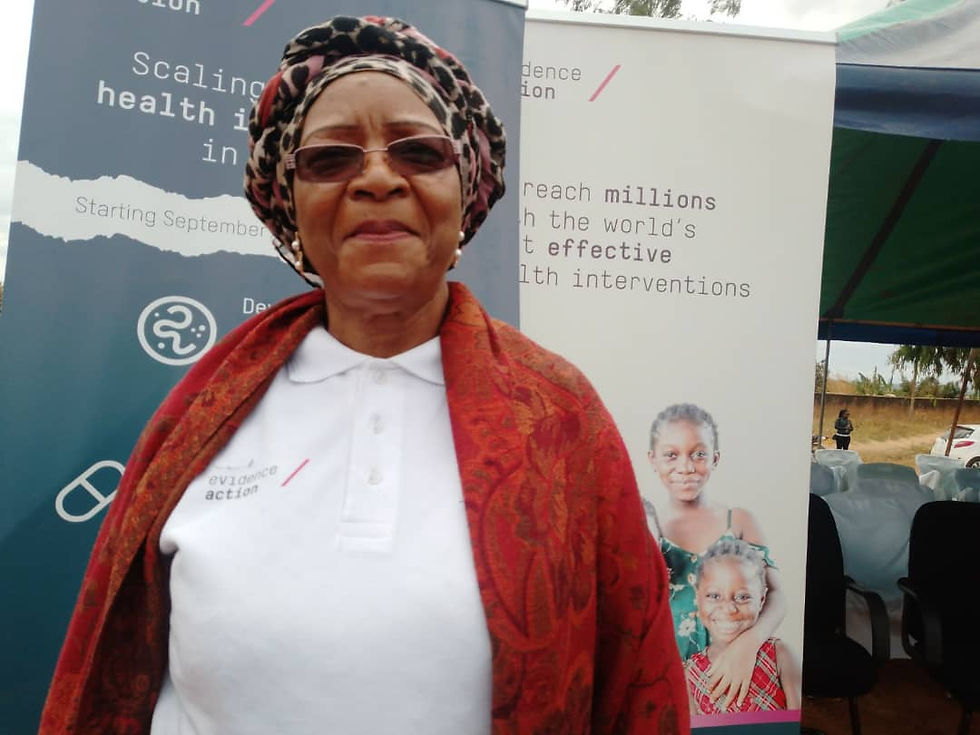Ministry of Health launches program to fight anaemia and worms in Children
- goodmorningafricanews

- Sep 6, 2024
- 2 min read
By Chisomo Sezi
The Government of Malawi, through the Ministry of Health, has launched a deworming and Iron Folic Acid Supplementation (IFA) program aimed at reducing anaemia among adolescent girls aged 10-19 and addressing deworming needs for children aged 5-14.

Anaemia and Worms still an issue to children and adolescent girls PIC Chisomo Sezi
The program, which was launched at Kazengo Primary School in Mzimba District, is designed to tackle the widespread issues of anaemia and parasitic worms affecting children and adolescent girls in the district.
Speaking at the event, Board Chairperson of Evidence Action, Dr. Anne Phoya, emphasized the ongoing challenges related to anaemia and worms, which continue to affect the health and well-being of children across Malawi.
"Many children in the country are still struggling with health issues such as worms and anaemia, especially among adolescent girls. We are hopeful that administering Iron and Folic Acid Supplements (IFA) will greatly improve their health,” said Phoya.
She stressed the importance of investing in children's health for the nation's future and urged parents to overcome any misconceptions about health supplements to ensure the well-being of their children.
The program is set to be implemented nationwide, targeting 623,000 adolescent girls across seven districts, including Mzimba, Nkhatabay, Nkhota Kota, Ntchisi, Mulanje, Thyolo, and Chiladzulu.
"In the first round of deworming treatment, which begins on September 16, 2024, we aim to treat 2.6 million school-aged children for soil-transmitted parasitic worms and Bilharzia across 25 districts, with a goal of reaching 75% treatment coverage," added Phoya.
Representing the Minister of Health, Chief of Health Services, Dr. Mathews Joshua, expressed excitement about the new program and highlighted the connection between poor water, sanitation, and disease prevalence.

Communities should prioritize hygiene and sanitation
Dr. Joshua called on communities to prioritize hygiene and proper medical care, while also emphasizing the need for stakeholder collaboration to achieve the country's 2030 health goals.
He also encouraged parents to provide their children with balanced diets to prevent stunting and other health issues.
Inkosi Kampingo Sibande, who also spoke at the event, underscored the importance of the initiative, urging parents and communities to support it for the sake of their children's health.
“I call on all parents and communities to fully support this initiative, as it is crucial for promoting the well-being of our children and adolescent girls,” said Inkosi Kampingo.
He also expressed concern over certain religious groups that discourage their members from seeking medical care, stating that such practices undermine public health efforts.








Comments